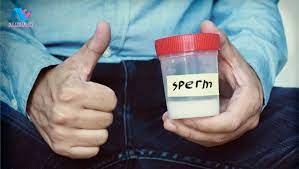In the journey towards parenthood, not everyone has a straightforward path. Infertility affects millions globally, and for many, sperm donation offers a beacon of hope. Whether you are considering becoming a sperm donor or exploring this option for growing your family, understanding the significance and process of sperm donation is essential. This article provides an in-depth look into sperm donation, its benefits, the process, and the ethical considerations involved.
What is Sperm Donation?
Sperm donation involves providing sperm to assist individuals or couples who are unable to conceive through traditional means. This donation can be used in various reproductive technologies, including artificial insemination (AI) and in vitro fertilization (IVF). Donors are typically anonymous, although some programs offer known donor arrangements where the recipient knows the donor's identity.

The Benefits of Sperm Donation
- Helping Others Achieve Parenthood: One of the most significant benefits of sperm donation is the ability to help individuals or couples who are struggling with infertility. By donating sperm, you provide an invaluable gift that can lead to the birth of a child and fulfill the dream of parenthood for many people.
- Supporting Same-Sex Couples and Single Parents: Sperm donation is a critical resource for same-sex couples and single individuals who wish to have children. This donation enables them to create families in a way that would otherwise be challenging or impossible.
- Contributing to Medical Research: Some sperm banks and fertility clinics use donated sperm for medical research, which can contribute to advances in reproductive technology and better understanding of fertility.
The Sperm Donation Process
- Screening and Application: Potential donors undergo a thorough screening process to ensure they are suitable candidates. This includes medical evaluations, psychological assessments, and background checks. Donors typically need to meet certain health and genetic criteria.
- Donation: Once approved, donors provide sperm samples at a sperm bank or fertility clinic. The process is straightforward and involves providing a sample in a private collection room. The sperm is then tested for quality and viability.
- Cryopreservation: After testing, the sperm is cryopreserved (frozen) to maintain its viability until it is needed. Cryopreservation allows sperm to be stored for extended periods, making it available for use when required.
- Matching and Use: When a recipient is ready to use the sperm, it is matched based on the donor's characteristics and the recipient's preferences. The sperm is then thawed and used in the chosen fertility treatment.
Ethical and Legal Considerations
- Anonymity and Confidentiality: Most sperm donation programs operate on an anonymous basis, but some jurisdictions and fertility clinics allow known donor arrangements. It's important to understand the implications of anonymity and confidentiality, including the potential for contact in the future.
- Legal Rights and Responsibilities: Donors typically have no legal rights or responsibilities towards any children born from their donation. Legal agreements are often in place to clarify the donor's role and ensure that parental rights are not claimed.
- Ethical Concerns: The ethical considerations of sperm donation involve ensuring that donors are fully informed about the process and that recipients are matched ethically and respectfully. Additionally, considerations around the potential for offspring to eventually discover their donor's identity are an ongoing topic of discussion.
The Impact of Sperm Donation
Sperm donation has a profound impact on the lives of many people. For those struggling with infertility, it offers a chance to experience the joy of parenthood. For donors, the satisfaction of knowing they have made a meaningful contribution to someone's life can be deeply fulfilling. Moreover, sperm donation plays a critical role in advancing reproductive technologies and medical research, which can benefit countless individuals in the future.
In conclusion, sperm donation is a remarkable process that helps to address infertility and support various family-building efforts. It involves careful consideration, commitment, and a willingness to contribute to the well-being of others. Whether you are considering donating sperm or exploring it as an option for family building, understanding the process and its implications is crucial. By doing so, you participate in a life-changing journey that can bring hope and joy to many.
